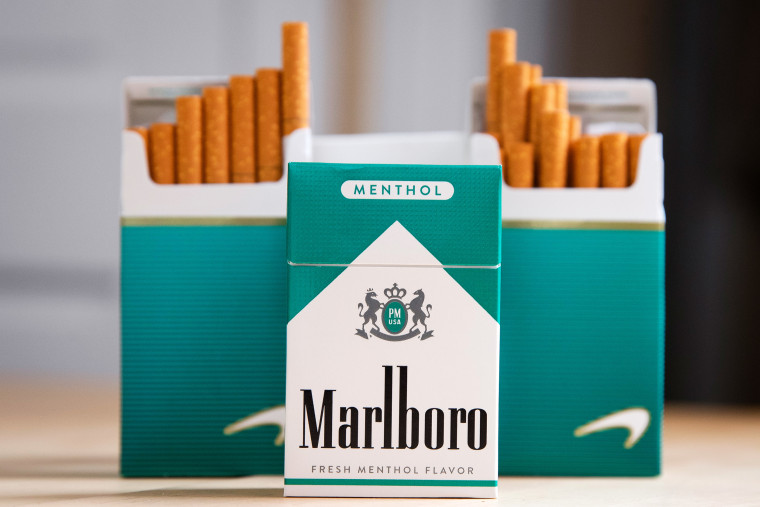The Biden administration has once again delayed banning menthol cigarettes, infuriating officials of public health groups who say the products are responsible for taking hundreds of thousands of American lives.
On Wednesday, the White House quietly updated its Office of Information and Regulatory Affairs website to reflect that any final ban on menthol wouldn't take place until at least March. Even then, it's expected to take years for menthol products to be off store shelves. The ban was previously supposed to take effect by the end of December.
"It's heartbreaking," said Emily Holubowich, the American Heart Association's national senior vice president of federal advocacy. "We know these products kill."
The AHA and other public health organizations, such as the American Lung Association and the Campaign for Tobacco-Free Kids, have been pushing to ban menthol tobacco products for well over a decade.
"If not now, when?" Holubowich said.
Although the Food and Drug Administration would enact the ban, the move to delay it is in the hands of the Biden administration. The White House declined to comment on the delay.
"It is incredibly frustrating as a person who is dedicated to public health and to health equity to see something like this continually be delayed," said Dr. Avenel Joseph, the vice president of policy at the Robert Wood Johnson Foundation.
Public health officials worry that there won't be bandwidth to push for the ban in an election year, as other political issues take center stage.
"In an election year, policymaking tends to grind to a halt," Holubowich said. "People are distracted. They're out campaigning."
The problem with menthols
The tobacco industry has fought a menthol ban, suggesting it would force consumers to "turn to the illicit market."
A "rise in illicit trade will result in increased prosecutions, arrests, and negative law enforcement interactions, particularly in communities of color where menthol smoking is most prevalent," a spokesperson for R.J. Reynolds Tobacco Co. said in a statement.
Public health experts immediately dismissed the argument as an issue separate from public health.
"The first step is to follow public health evidence" to ban sales of menthol products, Joseph said. "Then we can deal with appropriate enforcement responses and mechanisms needed to be sure that we’re not unduly targeting Black communities."
"If we prohibited the sale of menthol cigarettes, it would literally be a game changer for public health," she said.
When it is added to tobacco products, menthol flavoring produces a cooling sensation in the throat. That reduces the harsh taste and irritation of cigarette smoke, essentially making it easier to start smoking and more difficult to stop, experts say.
People who smoke menthol cigarettes are less likely than nonmenthol smokers to quit successfully, according to the Centers for Disease Control and Prevention.
Black Americans are affected most. Nearly 85% of Black smokers use menthols, compared to 30% of white smokers, according to the FDA.
"Largely because of menthol cigarettes, Black Americans have a harder time quitting smoking and die at higher rates from tobacco-related diseases like cancer, heart disease and stroke," Yolonda Richardson, the president and CEO of the Campaign for Tobacco-Free Kids, said in a statement. "Research shows that prohibiting menthol cigarettes will save up to 654,000 lives within 40 years, including the lives of 255,000 Black Americans."
Black men have the highest lung cancer death rate in the U.S. According to the CDC, 157,000 African Americans died prematurely because of menthol cigarettes from 1980 to 2018.
The issue is the No. 1 health problem facing Dr. David Margolius, who heads the Department of Public Health for Cleveland. The city has one of the highest smoking rates in the country, at 35% of adults, he said.
"This delay is atrocious. The longer that we wait, the harder it's going to be to end the sale of menthol cigarettes," Margolius said. "Any delay will result in more people dying in this country."
CORRECTION (Dec. 7, 2023, 10:40 a.m. ET): An earlier version of this article misspelled the name of the vice president of policy at Robert Wood Johnson Foundation. She is Dr. Avenel Joseph, not Avenal.
CORRECTION (Dec 7, 2023 10:40 a.m. ET): An earlier version of this article mischaracterized the Biden administration’s response to a request for comment Wednesday afternoon. The White House did respond, and declined to comment on the delay.

